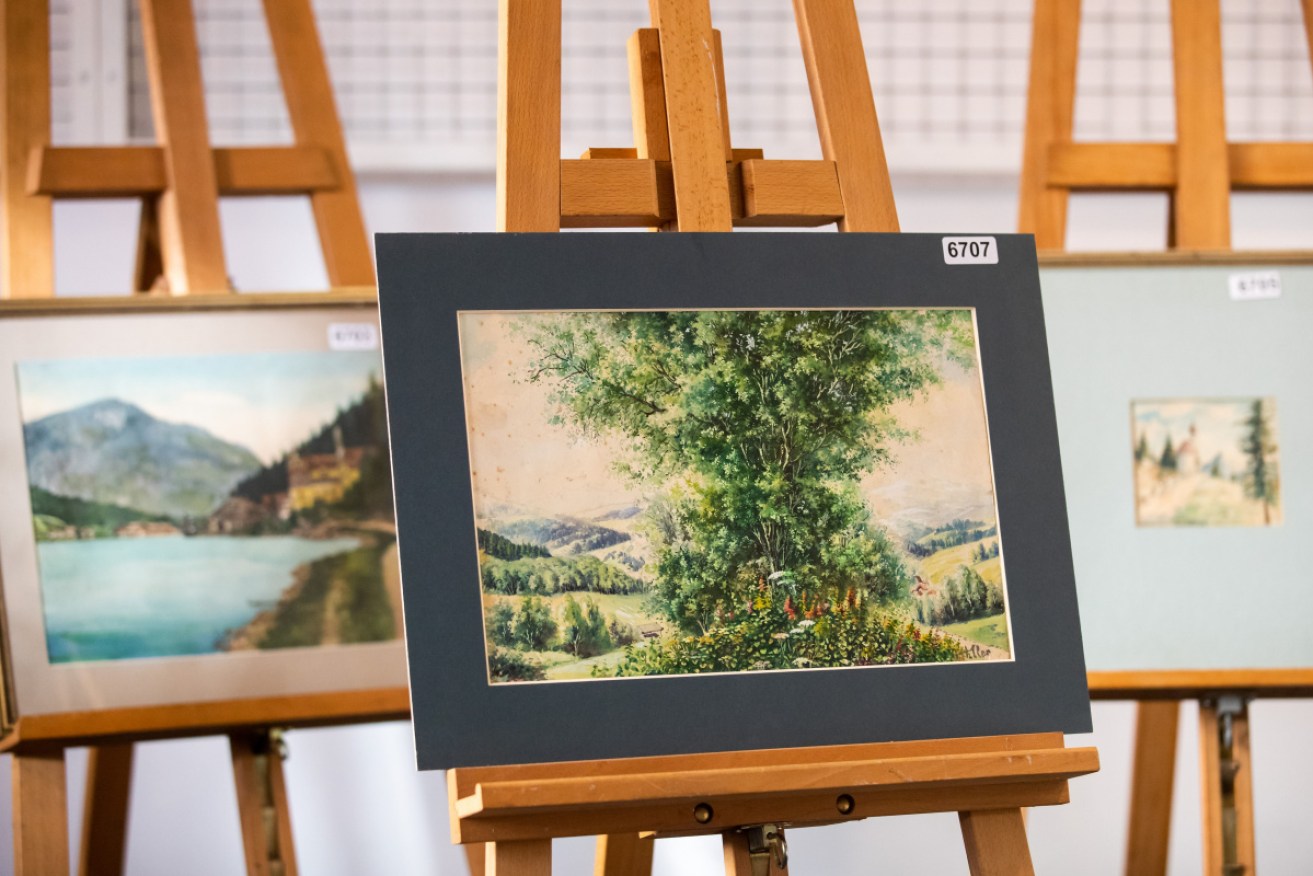Adolf Hitler paintings go unsold at German auction


A German auction house initially scrapped the planned sale of 26 artworks attributed to Adolf Hitler. Photo: Getty
Five watercolour paintings believed to have been the work of Nazi dictator Adolf Hitler failed to sell at an auction in Germany after questions arose over their authenticity.
Five paintings signed ‘A. Hitler’ received no bids which had starting prices of between 19,000 euros ($A30,385) and 45,000 euros ($A71,965).
It comes days after the Weidler auction house in the southern German city of Nuremberg, scrapped the planned sale of 26 other artworks attributed to Hitler as 63 total artworks were seized by prosecutors to investigate allegations they were fakes.
Three additional Hitler watercolours were seized in Berlin last month after a complaint questioning their authenticity.
The auction house located where Nazi war criminals were tried in 1945, said the five paintings which featured views of Vienna or Nuremberg, female nudes and still life works, could be auctioned off again.
However, it did not disclose why they received no initial bidders.
Among the other items that failed to sell were a wicker armchair, bearing a swastika symbol, and a vase presumed to have belonged to the late Nazi dictator.

A wicker armchair and a vase belonging to Hitler did not sell. Photo: Getty
As a young man, Hitler unsuccessfully struggled to succeed as an artist in Vienna before World War I.
Nuremberg’s mayor Ulrich Maly had earlier condemned the sale as being “in bad taste”.
Stephan Klingen of the Central Institute for Art History in Munich said Hitler had the style of “a moderately ambitious amateur” but his creations were rather similar to “hundreds of thousands” of other paintings produced within that time period – making it hard for prosecutors to determine their authenticity.
Hitler had no distinctive style, and signatures that were painted rather than written with pens were considered almost impossible to verify.
“There’s a long tradition of this trade in devotional objects linked to Nazism,” Mr Klingen told AFP.
“Every time there’s a media buzz about it… and the prices they’re bringing in have been rising constantly. Personally, that’s something that quite annoys me.”
The Nuremberg-Fuerth prosecutor’s office launched an investigation against a number of unidentified people “on suspicion of falsifying documents and attempted fraud”, chief prosecutor Antje Gabriels-Gorsolke said.
“If they turn out to be fakes, we will then try to determine who knew what in the chain of ownership,” she said.
The auction house said that the paintings’ withdrawal from sale did “not automatically mean they are fakes”.
-with AAP








